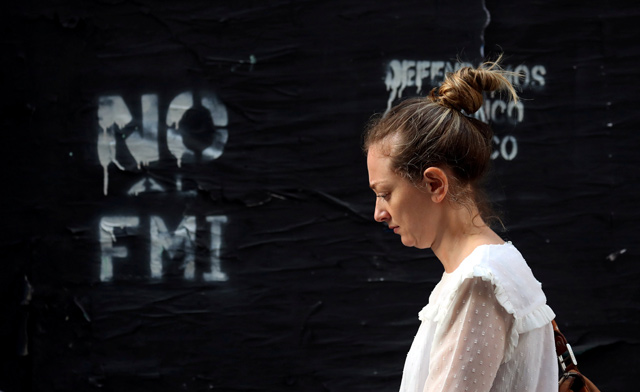WASHINGTON — The International Monetary Fund (IMF) executive board on Friday approved an increased loan package for Argentina worth $56 billion to help stabilise the crisis-battered country's economy and currency.
The IMF said the approval released $5.7 billion to the government immediately, but it also includes tougher conditions.
The country secured a $50 billion IMF loan in June, and had received $15 billion already, but as conditions worsened Buenos Aires had to go back to the lender for additional support with faster disbursement.
With the latest installment, the IMF has released just over $20 billion to President Mauricio Macri's government.
"Despite the challenging environment, the government has proactively strengthened its policy plans," IMF Managing Director Christine Lagarde said in a statement.
Argentina's woes were brought on by a rapid loss of confidence in its currency from April, which exacerbated the downturn already underway due to the severe drought.
The peso has lost around 50 per cent of its value against the dollar since the start of the year, including 20 per cent in a two-day period in August after Macri announced he was seeking to renegotiate the IMF loan.
The beefed up three-year loan package requires government spending cuts and changes to central bank policy, including moves to choke off inflation and allowing the currency to move freely, but authorities will be able to intervene if the peso falls to steeply.
Macri has introduced hugely unpopular austerity measures, including halving the number of government ministries and restoring taxes on grain exports.
The IMF stressed that the package includes a "floor" on spending for social programmes.
"Protecting the most vulnerable in Argentina continues to be a central component," and the government would "increase in spending on social assistance programs in the event that social conditions deteriorate", the IMF said.
Austerity budget
The IMF loan announcement came the day after Argentina's lower house of Congress passed an unpopular austerity budget, which now goes to the Senate where it is expected to win final approval.
The final pre-dawn vote came after a marathon, rancorous debate and a day of unrest that saw police fire tear gas and rubber bullets at demonstrators throwing rocks outside the legislature to protest a bitter cocktail of tax increases and spending cuts.
Macri has pledged to enact a series of cuts in health, education, science, transportation, public works and culture to the tune of $10 billion.
The budget deficit was 3.9 per cent of gross domestic product (GDP) last year. The government aims to get it down to 2.7 per cent in 2018 and zero by the end of next year.
The IMF estimates the economy will contract by 2.6 per cent this year with inflation of almost 32 per cent.
An IMF official told reporters the deterioration of the currency led to a surge in the country's debt burden to 81 per cent of GDP. But as the peso stabilises and with the spending cuts the aim is to bring that down to below 60 per cent by 2023.
The official noted that the peso was overvalued and now was "much closer to fair value in terms of fundamentals".
The currency was trading at about 37.93 to the dollar on Friday.
Argentina's finance ministry has said the agreement with the IMF's executive board includes a commitment to maintain spending on social programs to more than 1.2 per cent of gross domestic product in order to protect the most vulnerable sectors.
More than 27 per cent of the population is listed as living below the poverty line and the South American country has an unemployment rate of 9.6 per cent.
